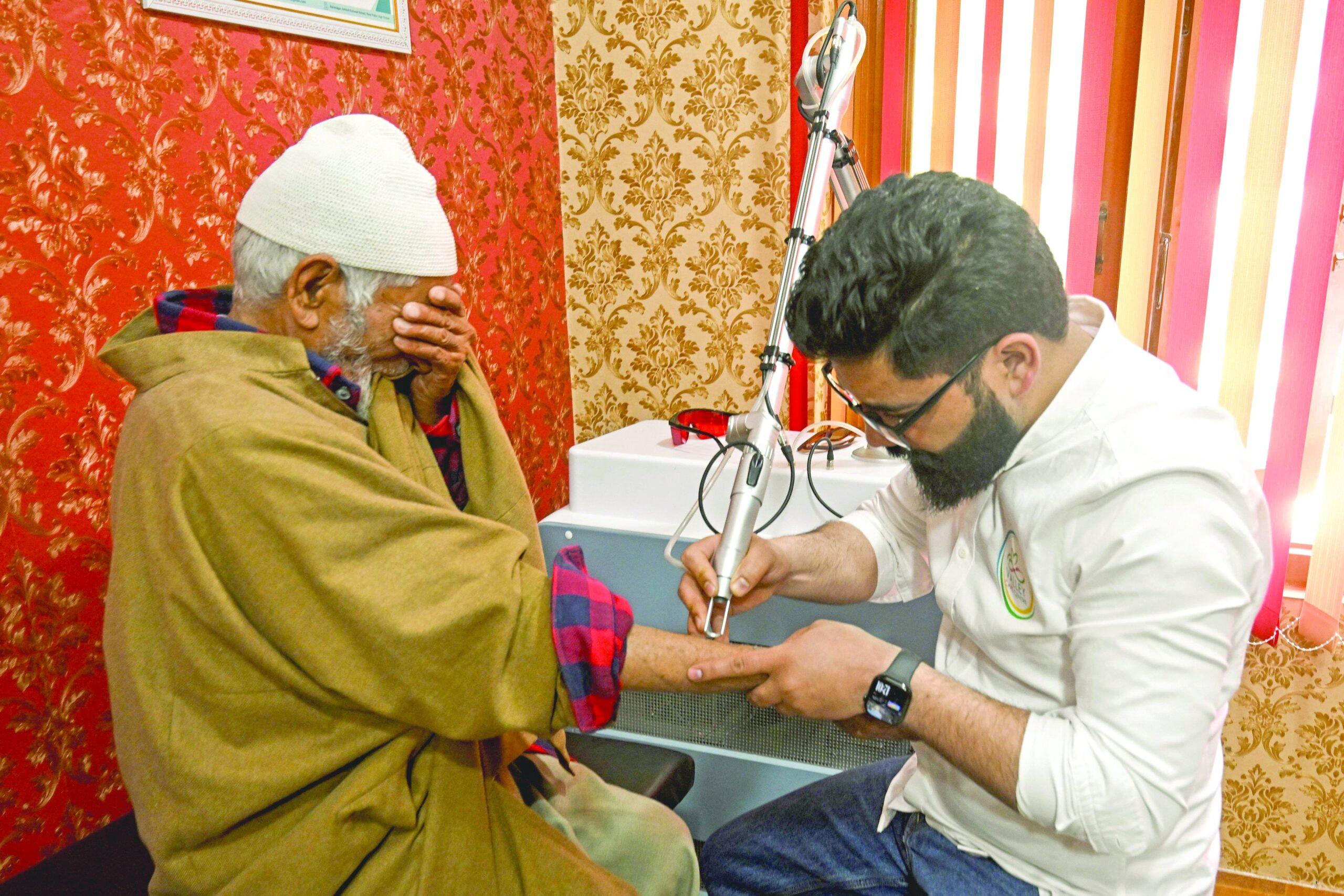Occupied srinagar:
Thousands of Jammu-et-Cachemire of the Indian occupied the Jammu-et-Cachemire with “resistance tattoos”, including assault rifles, signed to oppose the authority of New Delhi made up to rub them with their body, fearing the compensation of the police.
Basit Bashir receives up to 100 people, mainly men, every day in its laser clinic in the main city of Srinagar, quickly hovering on designs ranging from AK-47 rifles to Islamic symbols such as a crescent moon.
“I removed AK-47 in complete safety and similar tattoos of the arms and neck of more than 1,000 young people using laser,” said Bashir to AFP in his clinic in the old district of Srinagar when he exploded high intensity light pulses to break the ink.
“After Pahalgam, we found an increase in the number of people with an AK-47 crescent or tattoos for withdrawal,” said Bashir, 28.
A young man came this week with an AK-47 tattoo after friends told him that he was worth it “to have him removed” because the situation was “very precarious,” he said.
In Iiojk, body tattoos have been a form of political expression, such as graffiti, since a movement of freedom against illegal Indian domination broke out in 1989.
The deeply detained anti-Indian feeling has remained. Many of those who grew up during the violent uprising had their body inked from symbols expressing not only resentment towards Indian domination but also their religious identity.
Bashir, the laser technician, said that he had initially started to erase tattoos representing Muslim religious symbols. “They wanted the tattoos to be removed, believing that it was prohibited in Islam and wanted to be buried as pure after death,” he said.
But others with pro-independence slogans began to come in large numbers after 2019, when New Delhi canceled the partial autonomy of the region and set dissent and demonstrations.
Thousands of people were arrested and civil freedoms have been radically reduced. Police and security forces increased surveillance following the 2019 change in the status of the territory.
They punished the political expression referring to resistance or a reference to the disputed nature of cashmere in any form – even on social networks.
“I started to get a flow of young men and frightening women looking for their tattoos to be removed safely,” said Bashir.
Some days, more than 150 people showed up at his clinic, which prompted him to buy a new machine for a million rupees (almost $ 12,000).
“Many of them told me about their stories to be harassed by the police for their tattoos showing any anti-Indian feeling,” he said.
Precipitation for having erased tattoos for fear that police reprisals have now caused more than 20 other laser clinics across Srinagar, billing between 300 and 3,000 rupees ($ 3.50 – $ 35) for work, depending on the size of the tattoo.
Feeling the rush, Bashir said that he had trained in the state of Gujarat in India to learn to erase tattoos safely. “People come from everywhere in cashmere,” said Bashir. “Many told me about their horrible stories about the police interrogation for their tattoos.”
Many were hesitant, fearing to talk about younger motivations for tattooing. “I am reprimanded by my family and my school friends all the time for my tattoos,” said a student, shaking his teeth during the painful procedure. “I can’t face it anymore, that’s why I came here”.
Another, a lawyer hoping to find a match for marriage, said that she had tattooed an assault rifle on her arm in the 1990s when the armed rebellion was at her peak.
“This is what I saw all around me during my childhood-soldiers and activists brandishing and drawing from their AK-47,” she said, refusing to be identified for fear of reprisals.
“Everything has changed since then,” she said, showing the blisters that have now replaced the rifle after two laser laps. “These things are trouble.”




